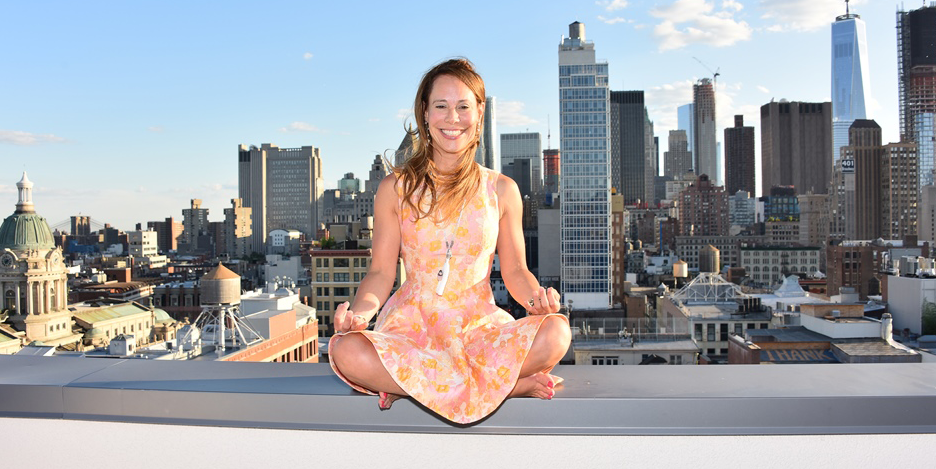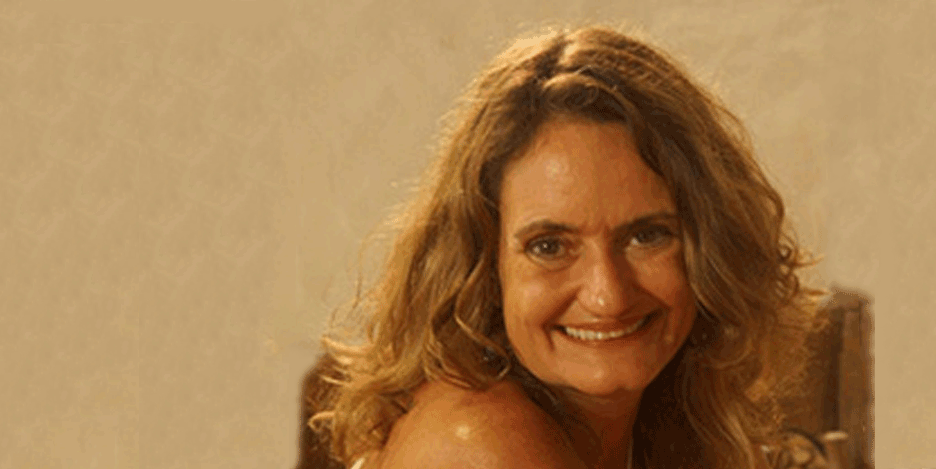Born and raised in Paris, Clara Bellar is an actress, singer, writer, director and producer. Clara’s film career took off when she met the French New Wave director Eric Rohmer after he saw her in a Parisian stage production of Sleeping Beauty. Mr. Rohmer cast her as the lead in his film Rendezvous in Paris. As an actress, she is best known for portraying the nanny robot in Steven Spielberg’s A.I., and for starring in Paul Schrader’s Dominion: Prequel to the Exorcist. Clara wrote, produced and directed the documentary Being and Becoming, which was shot in France, Germany, the UK, and the US over the course of two years. The film has been screened in 35 countries, with theatrical releases in 6 countries.
1. You are an actress, singer, author, film-maker, and advocate. What was your first love and how did you decide to pursue it?
Books and films were my first love. I can’t say which came first. Theater came a bit later. Story-telling about very human themes was always central in my life. I think that with story-telling, we can touch people’s heart and bring empathy to situations that were devoid of it. Acting was my first love, and it’s still a wonderful way for me to connect with characters very different from myself and understand them and become a better person. With writing, producing and directing, I get to choose the story, the theme and the values to share. I feel more empowered to contribute with what has deep meaning and is urgent for me.
2. Your documentary, Being and Becoming is about the self-directed natural learning movement. Can you tell us about the movement and how you became interested in it?
I don’t see it as a movement, because it’s the way humans have always learned: By living in their environment, by interacting, by observing and focusing on their areas of interest. As Naomi Aldort puts it in the film: “When people think that Unschooling is revolutionary, and scary, they forget that’s most of human history was unschooling; the whole school idea is actually new in history and radical and revolutionary.”
I became interested when first exposed to the philosophy, because it implied so much respect and consideration for children, which is something that has always meant a lot to me. Children are the last people we can legally mistreat or even be violent towards. Here in the US, you can no longer beat your wife or even your dog, but you may still hit the most defenseless category of citizens, children. So anything that has to do with children’s rights has my attention, and the rest is history. When I met so many happy people, it became a responsibility to share the information.
3. When students fail in a traditional school setting, they may suffer a stigma — being held back or at least being called to the principal’s office for an uncomfortable chat. How does unschooling approach failure?
What is failure and what is success? That is the important question to ask oneself. In Unschooling, it’s a totally different paradigm. In my film Being and Becoming, Helen Lees, writer and researcher on educational alternatives in the UK, puts it this way: “A completely different concept of success operates in Unschooling. People talk about how, once they’ve entered the world of Home Education, their idea of success changes drastically. It takes the idea of success away from qualifications and the gaining of them, the making of money and the accumulation of it, to ideas and questions that are much more centered on the balance and the well being of the self.”
The question is why do we start teaching the concept of failure to very young children? It’s not a concept we’re born with, it’s a cultural indoctrination. When my daughter decided at 6 months old that she wanted to walk, she was so determined that we thought she’d walk within weeks. When she was 7 months, 8, 9, 10, 11, she still wasn’t walking. Did she think she was a failure? No, she just kept going at it, falling, standing right back up, falling again, joyfully.
Why does it need to be different when children get to a certain age, and then for the rest of our lives? Why the pressure? What if we kept looking at falling the same way, as information, as a playful learning step? This Edison quote on his failure to achieve a working lightbulb is very Unschooly: “Results! Why, man, I have gotten a lot of results. I know several thousand things that won’t work.”
John Holt in Learning all the time advocates not correcting little children when they say the wrong color. He explains how instead of helping, it slows the learning down and teaches children to be self-conscious, as much as praise does. Alfie Kohn, author of Punished by Rewards, has a wonderful article titled 5 Reasons to stop saying good job. We can really benefit from moving away from this failure versus success duality and from being non-judgmental witnesses for our children and for ourselves.
4. What advice can you give to parents considering a non-formal education?
Watch our film! Talk to other parents, ask yourself the questions you’ve never thought of asking, don’t take any cultural given for granted, treat your children with the same consideration and dignity you’d treat an adult friend, and trust yourself, trust life and trust your child. She is perfect the way she is, regardless of any achievements. Allow her to be loved unconditionally, just for being herself. Thanks for asking!



